About BAART Programs
BAART Programs provide compassionate clinical assistance for adults dealing with opioid use issues in Saint Albans, Vermont. BAART Programs is helping stem the rising tide of opioid addiction by providing accessible medication assisted treatment to local residents.
Folks from Burlington, Montpelier, and Plattsburgh can also benefit from this program. This is due to their route access via US-7. Public transportation is available. Green Mountain Transit provides local bus routes in and around Saint Albans. The nearby Amtrak station offers travel to various cities in the region.
Rehab by Rugg Brook
Many people struggling with opioid use issues feel ashamed to seek help due to the stigma attached to opioid addiction. With BAART Programs, you don’t have to feel that way. They strive for warm, welcoming and nonjudgmental settings where you’re supported as you navigate recovery.
Another thing I find striking about them is their accessibility. They accept Medicaid, Medicare, and Medicare Advantage Plans. Several private insurances are acceptable as well. They’re also part of the VA Community Care Network through Optum and TriWest to help out veterans. They might even provide transportation aid for Medicaid patients.
Buprenorphine and Methadone Maintenance Treatments in Saint Alban
It’s cool that they offer tailored approaches to treatment. Once you arrive at the clinic, you’ll undergo an assessment and medical check-up so that you get a customized recovery. Medication assisted treatment (MAT) pairs FDA buprenorphine or methadone to tackle your physical symptoms by eliminating painful withdrawal issues and curbing physiological cravings.
You’ll then attend counseling to take care of the psychological aspects. They offer counseling in group and individual settings to build strong coping skills and prevent relapse. They also offer addiction and relapse prevention education to help you stay grounded in your healing process.
The clinical team will link you to community resources that support your healing via case management. These may include supportive housing, job placement, and medical care. They’ll help you in applying for or accessing government benefits like the State ADAP Grant.
Special Help for Guests and Expecting Mothers
BAART Program supports pregnant women in recovery through tailored care that prioritizes the safety of both the mom and fetus. They may coordinate care with your OBGYN to ensure well-rounded prenatal care.
Another important service you can access in this facility is guest dosing. This is helpful if you need to maintain your meds regimen while traveling or when your usual clinic is unavailable. It enables you to continue your treatment without disruption so you stay grounded with your recovery even while away from your regular clinic.
Latest Reviews
Rehab Score
Gallery
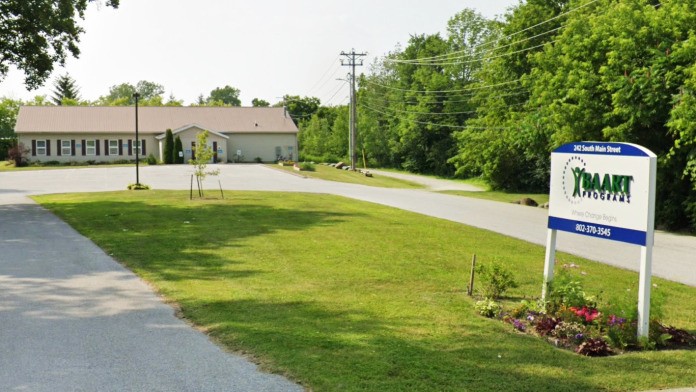
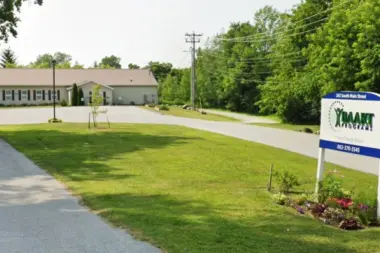
Other Forms of Payment
Medicaid is a state based program that helps lower-income individuals and families pay for healthcare. Medicaid covers addiction treatment so those enrolled can use their coverage to pay for rehab. When a program accepts Medicaid the client often pays very little or nothing out of their own pocket.
Self-pay involves paying for treatment out of your own pocket. You can use savings or credit, get a personal loan, or receive help from family and friends to fund your treatment. If you don't have insurance or your insurance plan doesn't cover a specific program, self-pay can help ensure you still get the care you need.
Financial aid can take many forms. Centers may have grants or scholarships available to clients who meet eligibility requirements. Programs that receive SAMHSA grants may have financial aid available for those who need treatment as well. Grants and scholarships can help you pai for treatment without having to repay.
Sliding scale payments are based on a client's income and family size. The goal is to make treatment affordable to everyone. By taking these factors into account, addiction recovery care providers help ensure that your treatment does not become a financial burden to you or your family, eliminating one barrier to care.
Private insurance refers to any kind of healthcare coverage that isn't from the state or federal government. This includes individual and family plans offered by an employer or purchased from the Insurance Marketplace. Every plan will have different requirements and out of pocket costs so be sure to get the full details before you start treatment.
Addiction Treatments
Levels of Care
Outpatient programs are for those seeking mental rehab or drug rehab, but who also stay at home every night. Their outpatient programs deliver medically supervised treatment in a variety of modalities and settings to meet the unique and specific needs of each individual. They combine evidence-based, medication assisted treatment with counseling and behavioral services in order to offer a full recovery to their patients.
Drug and alcohol addiction often takes a heavy toll on one's body. Over time, a physical dependence can develop, meaning the body physiologically needs the substance to function. Detox is the process of removing drugs and/or alcohol from the body, a process that can be lethal if mismanaged. Medical detox is done by licensed medical professionals who monitor vital signs and keep you safe, healthy, and as comfortable as possible as you go through detox and withdrawal.
12-step programs are addiction recovery models based on Alcoholics Anonymous (AA). A number of substance abuse programs (including some drug and alcohol rehab centers) use the 12 steps as a basis for treatment. Beginning steps involve admitting powerlessness over the addiction and creating a spiritual basis for recovery. Middle steps including making direct amends to those who've been hurt by the addiction, and the final step is to assist others in addiction recovery in the same way. 12-Step offshoots including Narcotics Anonymous (NA), Cocaine Anonymous (CA), Dual Recovery Anonymous (DRA), Sex and Love Addicts Anonymous (SLAA) and Gamblers Anonymous (GA).
Completing a drug or alcohol rehab program shouldn't spell the end of substance abuse treatment. Aftercare involves making a sustainable plan for recovery, including ongoing support. This can include sober living arrangements like halfway houses, career counseling, and setting a patient up with community programs like Alcoholics Anonymous (AA) or Narcotics Anonymous (NA).
Treatments
Opiate Addiction Treatment Centers specialize in supporting those recovering from opioid addiction. They treat those suffering from addiction to illegal opioids like heroin, as well as prescription drugs like oxycodone. These centers typically combine both physical as well as mental and emotional support to help stop addiction.
Substance rehabs focus on helping individuals recover from substance abuse, including alcohol and drug addiction (both illegal and prescription drugs). They often include the opportunity to engage in both individual as well as group therapy.
Programs
Adult rehab programs include therapies tailored to each client's specific needs, goals, and recovery progress. They are tailored to the specific challenges adult clients may face, including family and work pressures and commitments. From inpatient and residential treatment to various levels of outpatient services, there are many options available. Some facilities also help adults work through co-occurring conditions, like anxiety, that can accompany addiction.
Young adulthood can be an exciting, yet difficult, time of transition. Individuals in their late teens to mid-20s face unique stressors related to school, jobs, families, and social circles, which can lead to a rise in substance use. Rehab centers with dedicated young adult programs will include activities and amenities that cater to this age group, with an emphasis on specialized counseling, peer socialization, and ongoing aftercare.
Clinical Services
Cognitive Behavioral Therapy (CBT) is a therapy modality that focuses on the relationship between one's thoughts, feelings, and behaviors. It is used to establish and allow for healthy responses to thoughts and feelings (instead of unhealthy responses, like using drugs or alcohol). CBT has been proven effective for recovering addicts of all kinds, and is used to strengthen a patient's own self-awareness and ability to self-regulate. CBT allows individuals to monitor their own emotional state, become more adept at communicating with others, and manage stress without needing to engage in substance abuse.
Dialectical Behavior Therapy (DBT) is a modified form of Cognitive Behavioral Therapy (CBT), a treatment designed to help people understand and ultimately affect the relationship between their thoughts, feelings, and behaviors. DBT is often used for individuals who struggle with self-harm behaviors, such as self-mutilation (cutting) and suicidal thoughts, urges, or attempts. It has been proven clinically effective for those who struggle with out-of-control emotions and mental health illnesses like Borderline Personality Disorder.
Research clearly demonstrates that recovery is far more successful and sustainable when loved ones like family members participate in rehab and substance abuse treatment. Genetic factors may be at play when it comes to drug and alcohol addiction, as well as mental health issues. Family dynamics often play a critical role in addiction triggers, and if properly educated, family members can be a strong source of support when it comes to rehabilitation.
Group therapy is any therapeutic work that happens in a group (not one-on-one). There are a number of different group therapy modalities, including support groups, experiential therapy, psycho-education, and more. Group therapy involves treatment as well as processing interaction between group members.
In individual therapy, a patient meets one-on-one with a trained psychologist or counselor. Therapy is a pivotal part of effective substance abuse treatment, as it often covers root causes of addiction, including challenges faced by the patient in their social, family, and work/school life.
Life skills trainings involve all the skills a person must have in order to function successfully in the world. These include time management, career guidance, money management, and effective communication. Truly successful addiction recovery is based on the ability to not only live substance-free, but to thrive. Life skills teaches the practical necessities of functioning in society, which sets clients up for success in life, and therefore sobriety.
Motivational Interviewing (MI) is a clinical approach to helping people with substance abuse issues and other conditions shift behavior in positive ways. It is more goal-oriented than traditional psychotherapy, as MI counselors directly attempt to get clients to consider making behavioral change (rather than wait for them to come to conclusions themselves). Its primary purpose is to resolve ambivalence and help clients become able to make healthy choices freely.
Amenities
-
Residential Setting
-
Private Setting
-
Private Transportation
Staff & Accreditations
Staff
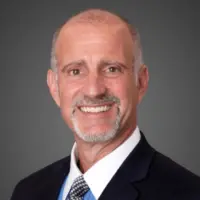
Marshal Salomon
CEO
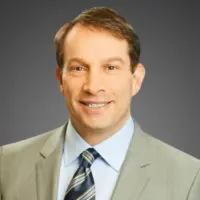
Jason Kletter, PhD
President

Bruce Jarvie
CFO
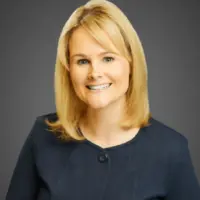
Susan Meyercord
Chief Compliance Officer & General Counsel

Michael Minks
CIO
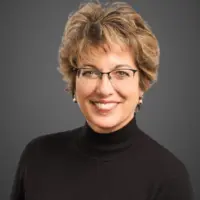
Robin Johnson
Senior VP of Marketing & Business Development

Libby Rohlfing
Senior VP of Payer Relations & Contracting
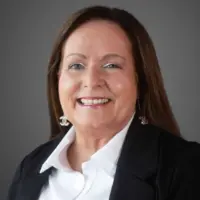
Cindy Novak
Senior VP of Human Resources
Accreditations

State Licenses are permits issued by government agencies that allow rehab organizations to conduct business legally within a certain geographical area. Typically, the kind of program a rehab facility offers, along with its physical location, determines which licenses are required to operate legally.
State License: Vermont
Contact Information
242 S. Main Street
Saint Albans, VT 05478